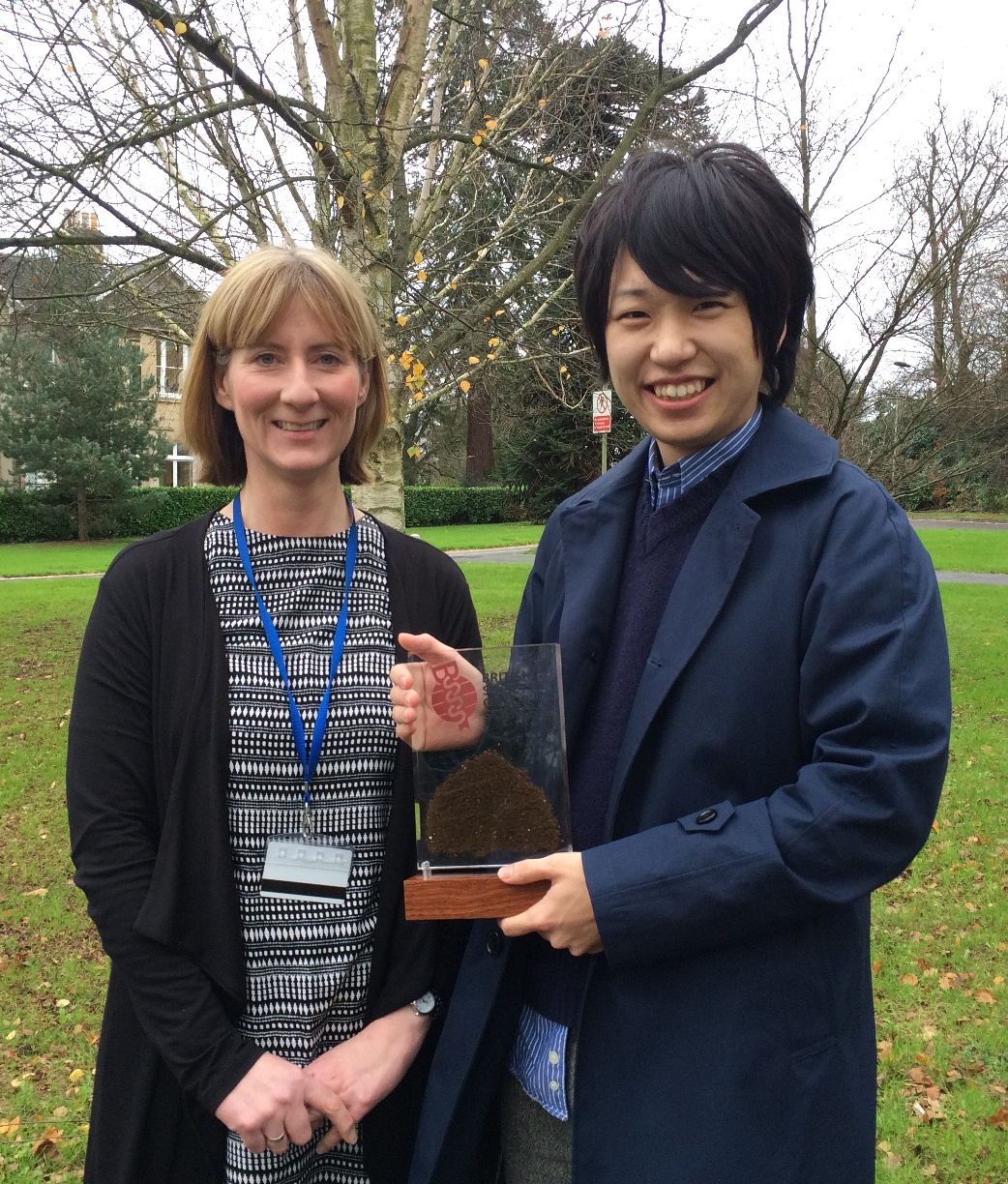 This week University of Reading and Royal Horticultural Society (RHS) PhD student Sarah Duddigan has been filmed for an Austrian children’s science TV programme, talking about her contribution to a decomposition rate citizen science project, known as the Tea Bag Index – UK.
This week University of Reading and Royal Horticultural Society (RHS) PhD student Sarah Duddigan has been filmed for an Austrian children’s science TV programme, talking about her contribution to a decomposition rate citizen science project, known as the Tea Bag Index – UK.
The Tea Bag Index is a novel method to measure decomposition rate in soil. Decomposition (the breakdown of organic material into its smaller constituents) is an important process for the release of nutrients into soil for plants to use. Therefore gaining a better understanding of decomposition in soil will be of great value to gardeners in the UK. The method is simple, UK participants are recruited through the RHS and posted some tea bags to bury in their garden. After three months they dig them up and send them back, along with a soil sample.
Decomposition of organic matter (i.e. dead plant and animal remains) in soils is an important process in any ecosystem.
Decomposer microorganisms feed on the organic matter and break it down into its simplest components. As organic matter is decomposed, water, carbon dioxide and nutrients are released. Meaning that, any excess nutrients are released and are available for plants to use to grow.
Maintaining a healthy and vibrant garden is the aspiration of most gardeners and healthy fertile soil is a key component of this. Therefore, a better understanding of decomposition rates in garden soils will be of great value to gardeners across the UK.
While having an active microbial population decomposing organic matter is important for soil health, they are not without their problems. While organic matter is decomposing, it releases the greenhouse gas carbon dioxide (CO2) into the atmosphere. A fast decay leads to more CO2 in the atmosphere and slow decay could lead to a greater proportion of carbon remaining in the soil. It is estimated that soils store a gigantic 2,300 billion tons of carbon worldwide; triple the amount than all the worlds plants. Therefore in order to gain a better understanding of global CO2 emissions from soils it is vital to know more about the rate of decomposition.
The data from the UK therefore can also be combined with data being collected across Europe (or across the world in fact) in order to gain a better understanding on the role of decomposition in global carbon emissions and the contribution to climate change.
This seems to be a contradiction, on the one hand decomposition is good for plant health, but on the other has the potential to contribute to climate change. This is why projects such as this, which aim to gain a better understanding of decomposition rates in soil, are so important.
For more information, and updates on the progress of the project, see the links below:
Website: www.teabagindexuk.wordpress.com
Facebook: www.facebook.com/teabagindexuk
Twitter: www.twitter.com/TeaBagIndexUK
@TeaBagIndexUK
#TeaBagIndexUK









